Met Police officer Anthony Long cleared of Azelle Rodney murder
- Published
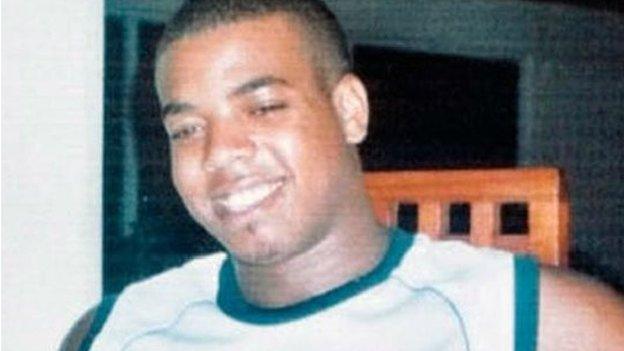
Azelle Rodney was shot six times during a Met Police operation to apprehend an armed gang
A police marksman has been cleared of murder 10 years after he shot dead a suspected armed robber.
Azelle Rodney, 24, was killed in Mill Hill, north London, in April 2005.
Anthony Long told the Old Bailey he made the split-second decision to open fire as he thought his colleagues were in "imminent" danger.
Mr Long, 58, allegedly took just six hundredths of a second to open fire on Mr Rodney in a police operation to foil an attempted robbery.
The trial heard he fired off eight shots in 2.1 seconds, six of which fatally injured Mr Rodney, who was the back seat passenger of a Volkswagen Golf, which was boxed in during the "hard stop" by armed police in Hale Lane.
June Kelly looks at the background to the case
'Life or death'
In making the split-second decision to open fire, the prosecution asserted Mr Long would not have had time to see whether Mr Rodney was doing anything that might pose a risk to the public and police.
But retired Mr Long, who was commended seven times during his distinguished 33-year career with the force, maintained he believed his colleagues were in danger.
Following the verdict, Mr Long said: "I am very grateful to the jury for returning a not guilty verdict.
"It has been very difficult facing trial for something that happened 10 years ago when I had acted to protect the lives of others as a part of my job and based on my training and experience.
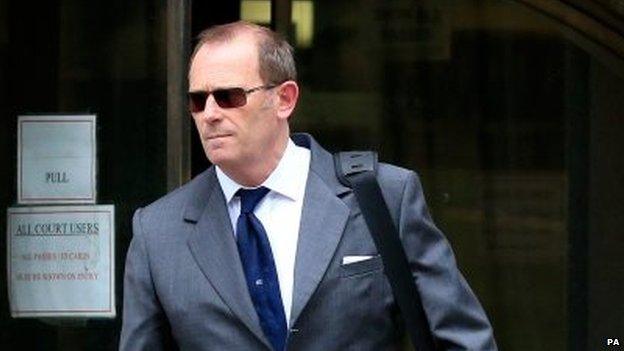
The retired police officer had 30 years' experience of handling firearms when he shot Mr Rodney
"Police firearms officers do not go out intending to shoot people and, like me in this case, have to make split second life or death decisions based on the information available to them at the time.
"I want to thank my family and friends who have stuck by me and supported me during this difficult time."

Analysis by Dominic Casciani, Home Affairs Correspondent
Why was a former police firearms officer found not guilty of the murder of a suspect he shot six times - a shooting that occurred a split second after the target came into view?
A police officer can only justifiably open fire if he or she genuinely believes that the trigger must be pulled to protect either himself, his colleagues or the public.
But what if the officer was mistaken or acted in more complicated circumstances?
That rule of genuine belief remains key - and the law allows for genuine belief being the product of panic or misinformation.
But crucially, the jury, who watched complex forensic reconstructions of the scene, had to be absolutely sure that the officer knew that he didn't need to open fire - and that was a conclusion they ultimately could not reach - bringing this exceptionally long and controversial case to a close.

Details of Mr Long's operational history, which included an incident in which he shot two other suspects dead, were not divulged in evidence.
At the conclusion of the inquiry, Mr Rodney's mother Susan Alexander had said of her son's "wholly avoidable" death: "The fact that he was strongly suspected of being involved in crime does not justify him or anyone else being summarily killed."
At the time, police intelligence had suggested the gang was armed with at least one deadly machine gun as they prepared to strike a gang of Colombian drug dealers in Edgware, north London, on the evening of Saturday 30 April 2005.
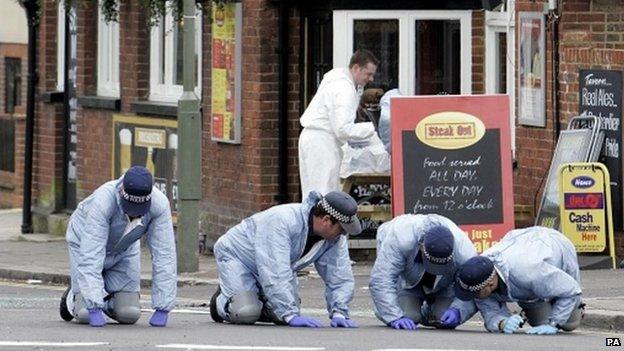
Police forensics team searching outside The Railway Tavern in Hale Lane following the shooting
However, a search of the car later revealed that although there were three weapons, none were automatic and only one was loaded, the Old Bailey heard.
After deliberating for 12 hours and nine minutes the jury found Mr Long not guilty of murder.
The jury was not told the outcome of a judge-led inquiry in 2013 that concluded the shooting was not legally justified and Mr Long's accounts of what he saw in the seconds before opening fire should not be accepted.
After the verdict, Mr Rodney's mother Ms Alexander repeated her view that her son's death was "wholly avoidable" and she was still waiting for an unreserved apology from the police and Independent Police Complaints Commission.
"Almost exactly two years ago, I welcomed the thorough and excellent public inquiry report of Sir Christopher Holland published on 5 July 2013," she said.
"I said then that I hoped the report would be ground-breaking and cause a shift in thinking by the police.
"I am still unclear on whether the police fully accept the recommendations made two years ago and that similar deaths in the future have been made less likely."
BBC Home Affairs Correspondent Danny Shaw said the verdict would be a huge relief to the Met Police, with there being serious concerns a guilty verdict would have led firearms officers to withdraw from the role.
Metropolitan Police Assistant Commissioner Patricia Gallan said: "Police officers are not exempt from the law, and would not wish to be.
"However, standing trial for murder will have been a very stressful and difficult time for Tony Long, a police officer for over 30 years.
"This must also have been a difficult time for Mr Rodney's family. The Metropolitan Police regrets Mr Rodney's death, and we express our full sympathy to his family."
- Published3 July 2015
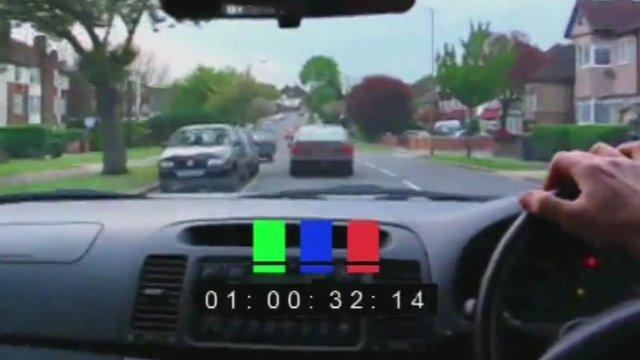
- Published3 July 2015
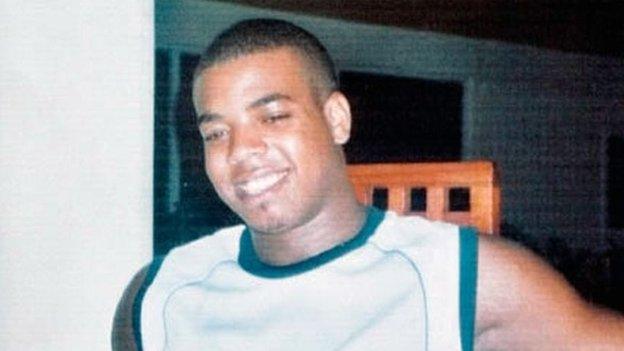
- Published1 July 2015

- Published24 June 2015
